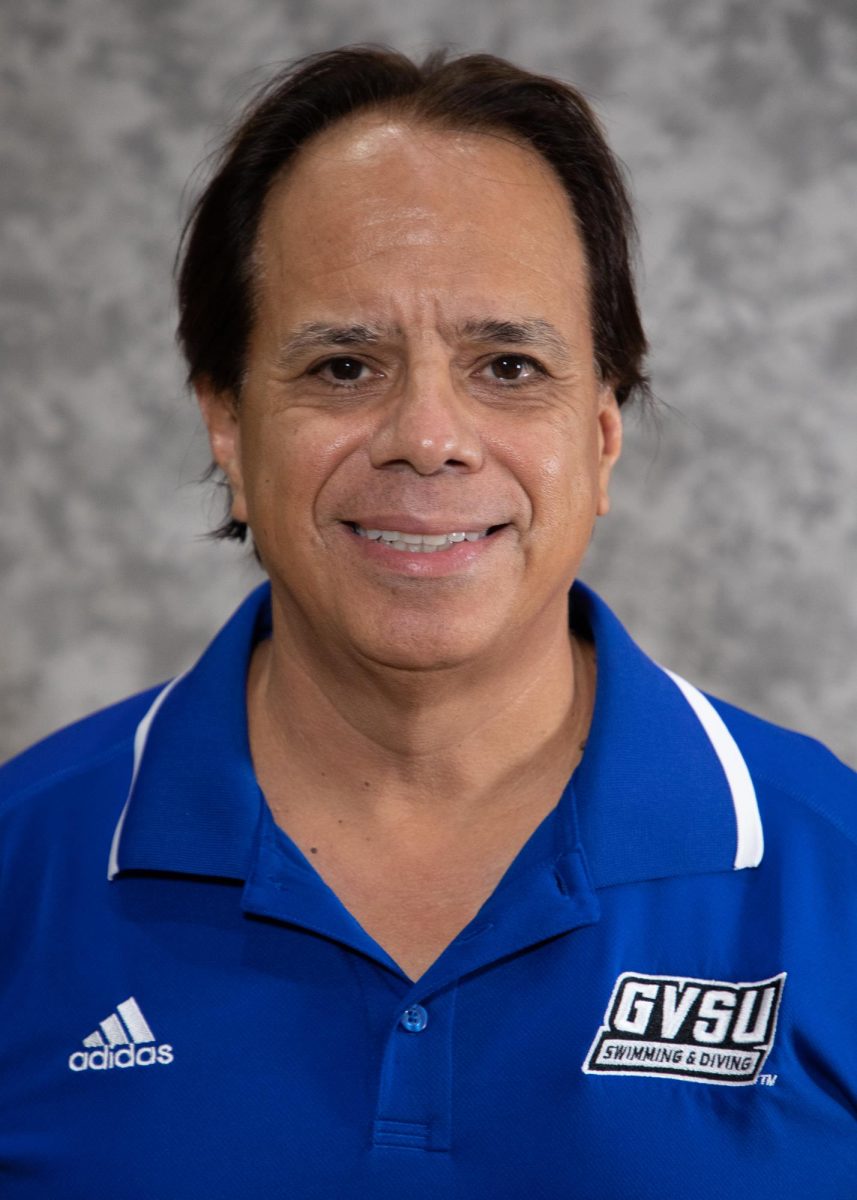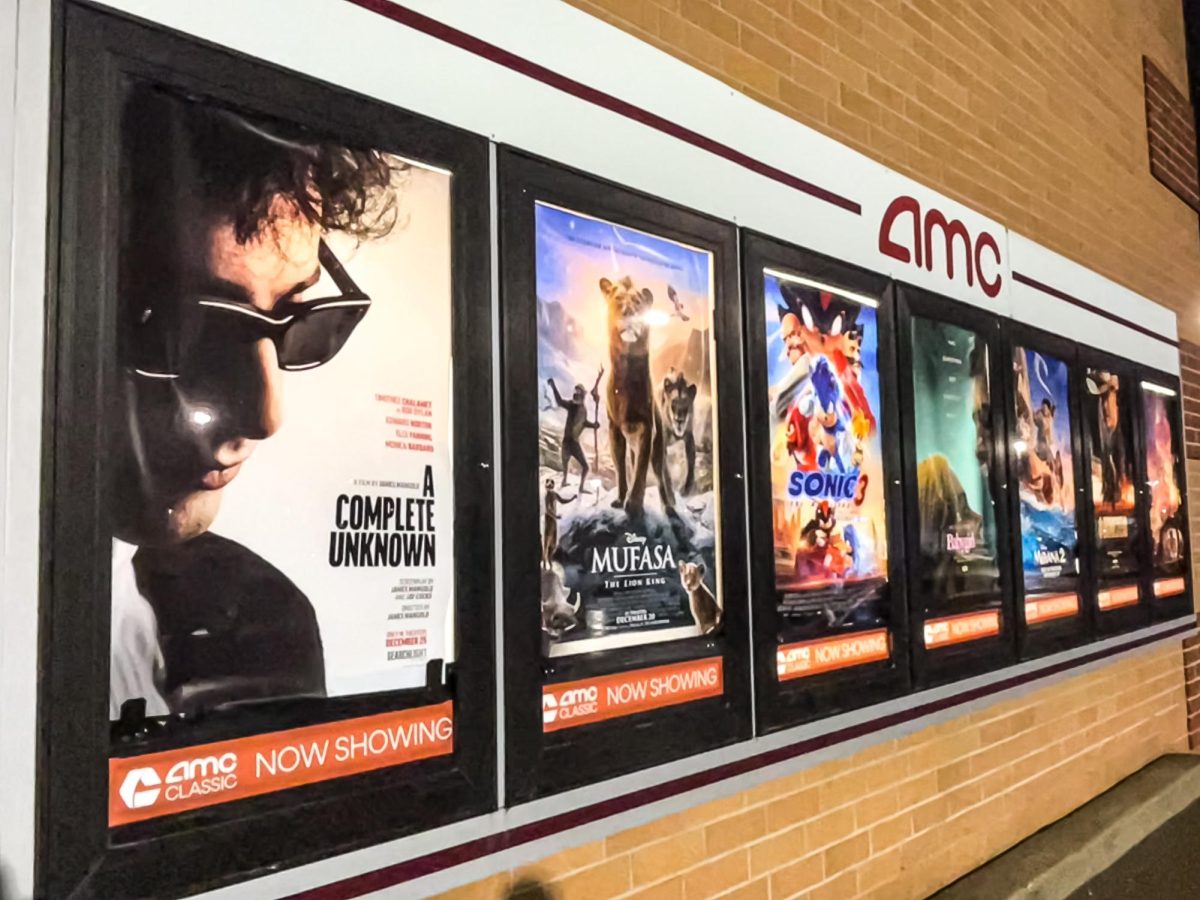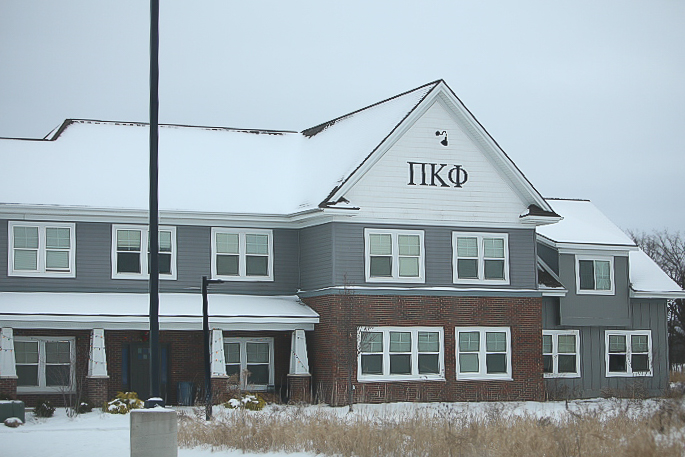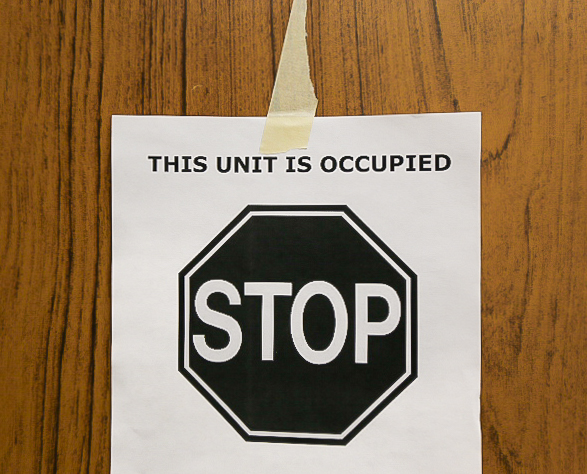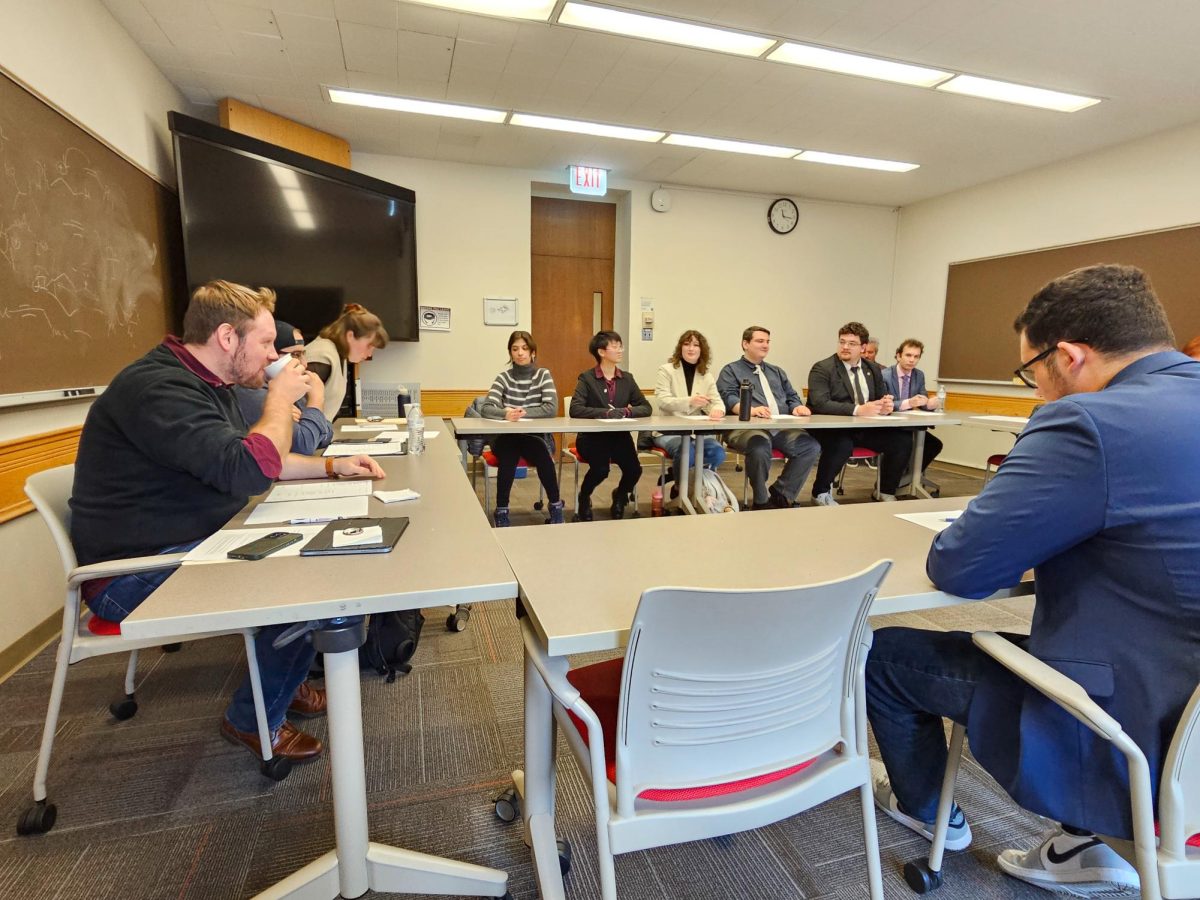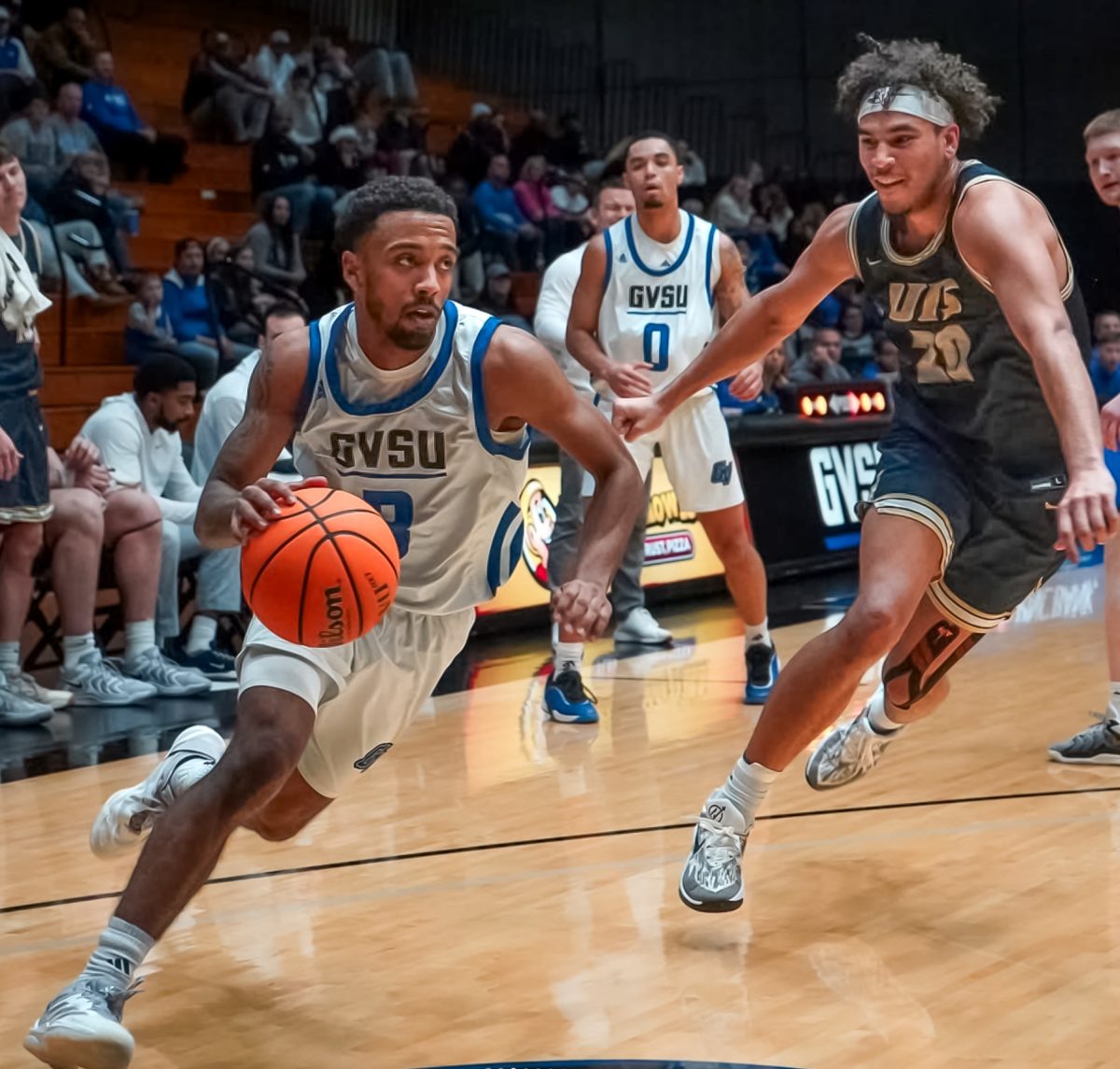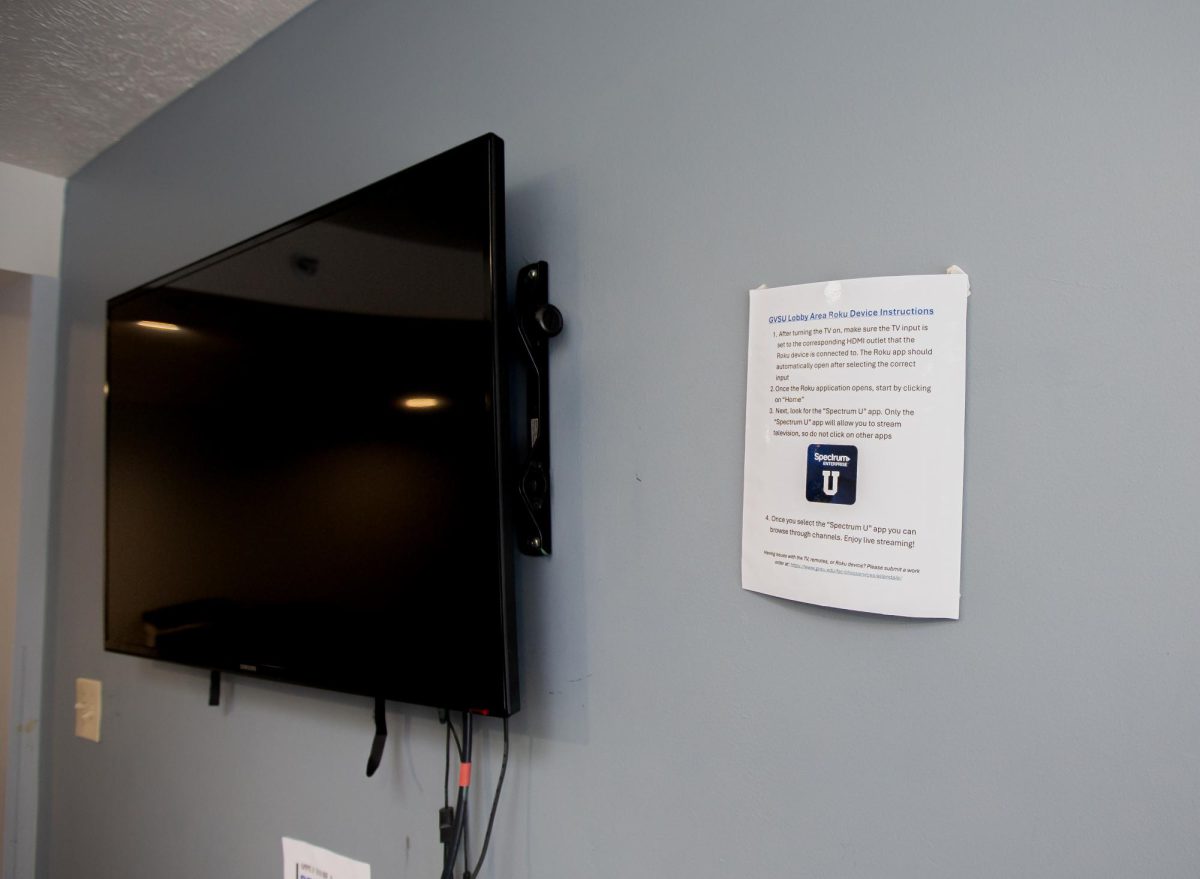Women’s Center hosts events on women, civil rights
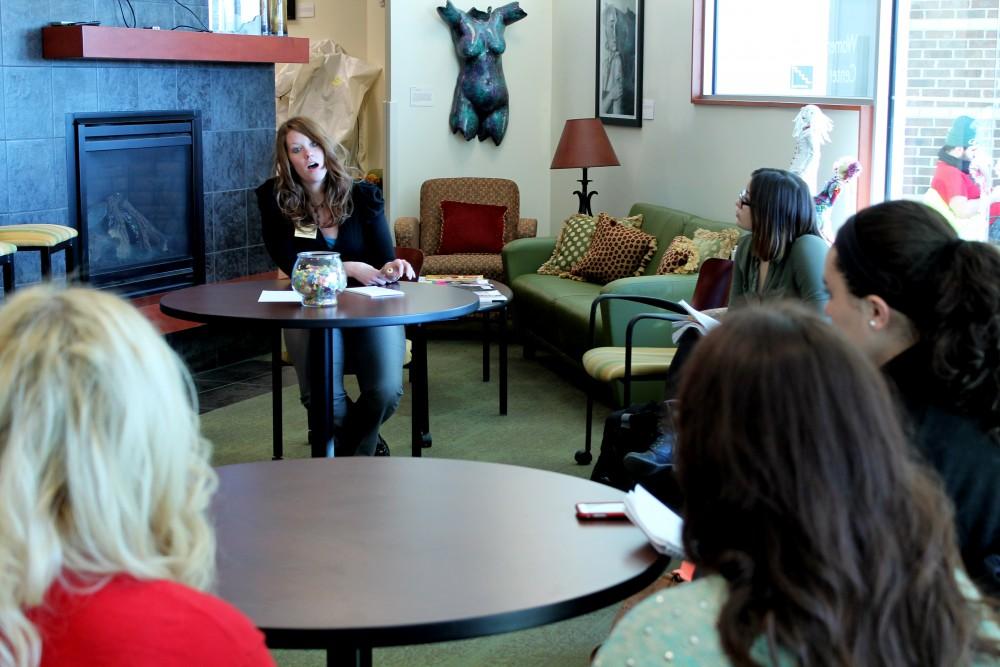
GVL / Emily Frye Assistant Director of the Women’s Center, Brittany Dernberger
Jan 29, 2015
Grand Valley State University students and faculty came together to discuss the role of women and other minority groups in the Civil Rights Movement at “Invisible: Women & The Civil Rights Movement” on Jan. 27 as part of the Women’s Center monthly “Talk Back Tuesday” discussions.
The informal discussion allowed participants to speak freely and easily with one another to make sense of the topic and how t it is relevant today.
Brittany Dernberger, assistant director of the Women’s Center, helped start the conversation by asking about prominent leaders of the Civil Rights Movement and abolition movement.
Martin Luther King Jr. and Malcolm X were the immediate responses. Other individuals like Rosa Parks, Harriett Tubman, Sojourner Truth and the Grimké sisters were mentioned after more thought.
“When women tried to get involved in this movement to end slavery, they were often silenced or pushed aside,” Dernberger said. “And part of that is because of traditional gender roles.”
The idea of name dropping historically significant people, knowing their name but not knowing their contributions and work, was brought up. People may have to dig deeper into research in order to learn about significant women and other people.
The conversation also sought to connect the topic of invisible people, or groups of people who are forgotten or ignored by history, to modern day.
Dernberger introduced to the conversation the historical event of deciding if black men or women, mostly white women, should get the right to vote first.
“That’s a great example of lateral oppression,” Dernberger said. “Where groups of marginalized identities end up policing and oppressing each other, which works to reinforce our social structures.”
Another major topic was how society is insistent on having people figure out how they identify, leaving little room for fluidity.
Dernberger mentioned how the Women’s Center, the Milton E. Ford LGBT Resource Center and the Office of Multicultural Affairs at GVSU are for all members of the college, regardless of how they identify.
“Part of the reason of naming something is to bring attention to a group that’s invisible,” Dernberger said.
Intersectionality was another facet of the talk. This is the idea that various forms of oppression and discrimination act together, and one cannot think in terms of one type when regarding a person’s identity.
“It’s taking your struggle, or whatever you’re going through, and trying to relate it to somebody else’s struggle,” said Kassidy Wiley, a junior at GVSU. “And knowing that somewhere down the line, everybody’s oppression intermingles.”
Forms of oppression related to socioeconomic class, race, gender and sexuality are aspects of one’s identity.
“Everybody has that individual experience, everybody’s not exactly the same,” Wiley said. “You do meet those few ignorant people, but not everybody’s like that. Those small increments and harsh conversations that you have with people, you sort of have to look through their lens and their experiences.”
The next “Talk Back Tuesday” event is scheduled for Feb. 10 from noon to 1 p.m. at the Women’s Center in the Kirkhof Center. Since February is Black History Month, the theme for the discussion is women’s roles and representation in the “Black Lives Matter” movement.
For more information, visit
www.gvsu.edu/women_cen/.




